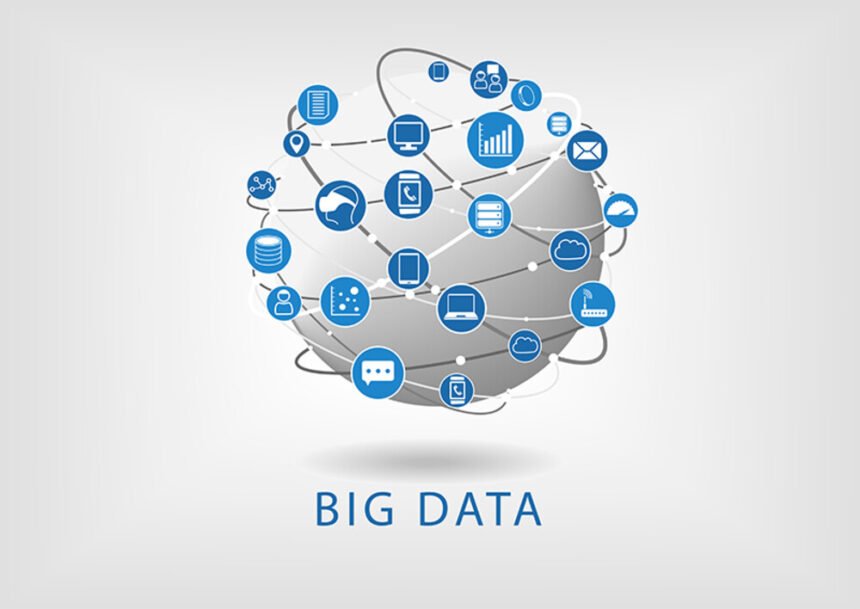Big data is helping people plan for unexpected interruptions in life. Although more predictive analytics models are developed for businesses, they can be used by everyday people as well.
Consumers are using big data to deal with unplanned financial problems, minimize health risks and prepare for family conflicts. We can use data to identify problems others have repeatedly faced.
Big Data Makes Planning for Challenges Easier
Life is full of little disruptions. Sometimes things happen and we have no way of expecting them. When that happens, we just react the best way we can and try to move on.
But other problems are visible from miles away. To avoid them, we only need to look for them–or even to assume they’ll come even when there aren’t any signs of imminent disaster. By taking action long before these things are on the horizon, we can prevent many of the problems that most other people end up suffering through, or at least we can minimize their impact.
You don’t need special powers of clairvoyance or a team of advisors to keep you ahead of the bad breaks in life. It just requires some common-sense planning and an understanding of the areas where things can go wrong. There are three very common ones that get people all the time.
Using big data to understand these problems makes things much easier.
Using Big Data to Prepare for Money Shortfalls
Denial is a common reason we get into trouble with any problem we face, and too many people live in denial about money. Whether it’s a child heading to college or a known interest-rate hike on a mortgage, we often have advance notice of financial demands that are coming our way, but we’re too intimidated by them to address them and we pretend they’re not coming.
But it isn’t just the amount of money we have, it’s also our access to it. Travel is a notorious offender. Many people with plenty of money in their bank accounts back home have run out of cash during international trips, putting them in a dangerous financial spot.
It’s an easy problem to avoid. Before you set foot on a plane or a cruise ship, identify some safe options for someone to complete a Ria money transfer to send money to you when your cash runs low. That way, you carry less cash while abroad but can still get help if you overspend your budget.
Fortunately, big data helps you in a number of ways. You can track your spending much more easily. You can find the best money saving opportunities. You can also identify the biggest causes of financial problems for others, so you don’t repeat them yourself.
Expensive Breakdowns
We live in a heavily-automated world. Our homes, our vehicles, our hobbies, and our workplaces are all populated with mechanized things that need our attention before they break down. Once again, denial plays a role; the air conditioning works today, so why would anyone expect not to work tomorrow?
The fact of the matter is that predictive maintenance is an essential strategy for anyone who wants to avoid a financial catastrophe. There is really no piece of equipment anywhere that never needs any attention in terms of routine upkeep, and nothing is easier to repair or replace than it is to keep running in the first place.
Take a leap and read the owner’s manual. Even things that don’t require power like hand tools and kitchen knives should have proper upkeep, and they’ll pay dividends down the road for your attention now.
This is another area that big data has helped. Many vehicle experts use big data to track the mechanical problems all vehicles face, so drivers can prepare for them and take the necessary steps to minimize them.
Your Health
We can’t escape this one. We understand more and more about what can sicken or kill us these days than we ever have, yet we continue to do dumb things to our bodies. And a shortening life expectancy for some groups proves it.
No one needs education about what to do here. They just need reminders. We all need to watch our weight, even when we’re only slightly above acceptable levels. After all, “slightly above” escalates to “well above” pretty quickly, and the most likely way for it to happen is when we aren’t concerned at “slightly”.
We need exercise, better diets, and close attention to our health. We need to do everything we can to prevent health problems and properly treat those we can’t prevent. If we’re on prescription medication, we need to take it consistently and correctly.
There will always be specific things we can’t predict. No one knows when an earthquake or a power outage will happen. But we can all do general things to minimize the impact of such events so that they don’t endanger our health, safety, or financial situation.
Epidemiologists from the CDC, the WHO and other health organizations are using big data to understand the prevalence of different illnesses and their causes. This helps people assess their risks of developing a certain medical condition and set aside the money they need to treat it in the future. Health savings accounts can be beneficial here. People can also use big data to understand the correlation between certain lifestyle choices and the risk of developing certain illnesses, so they can change their habits to minimize them.







